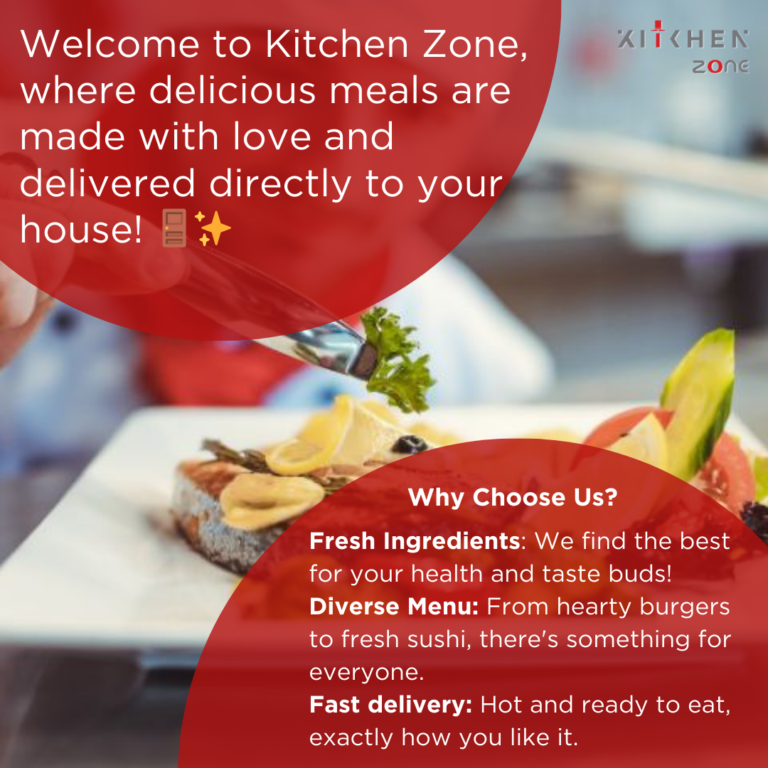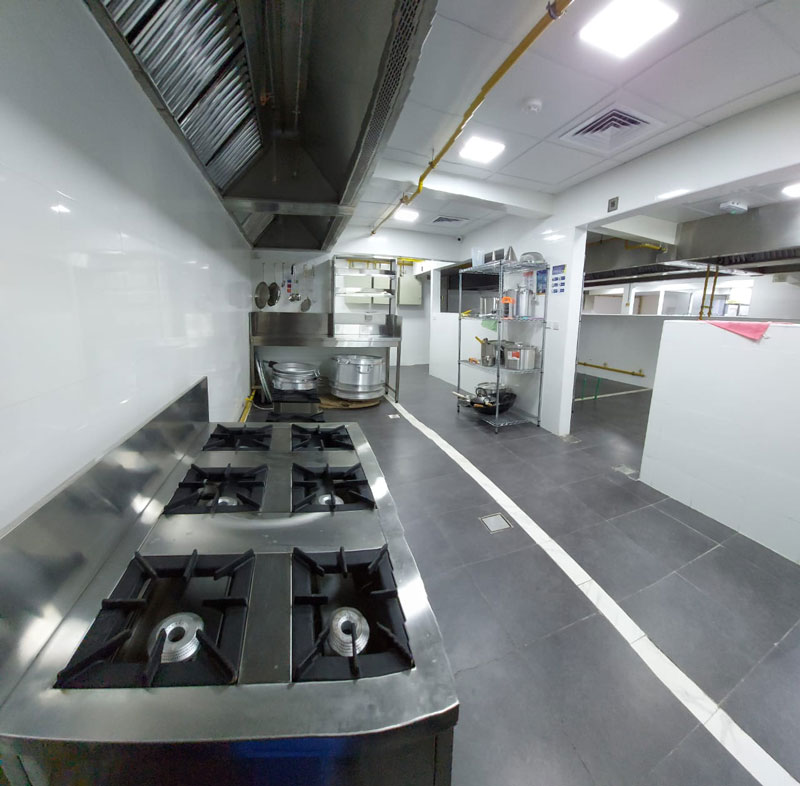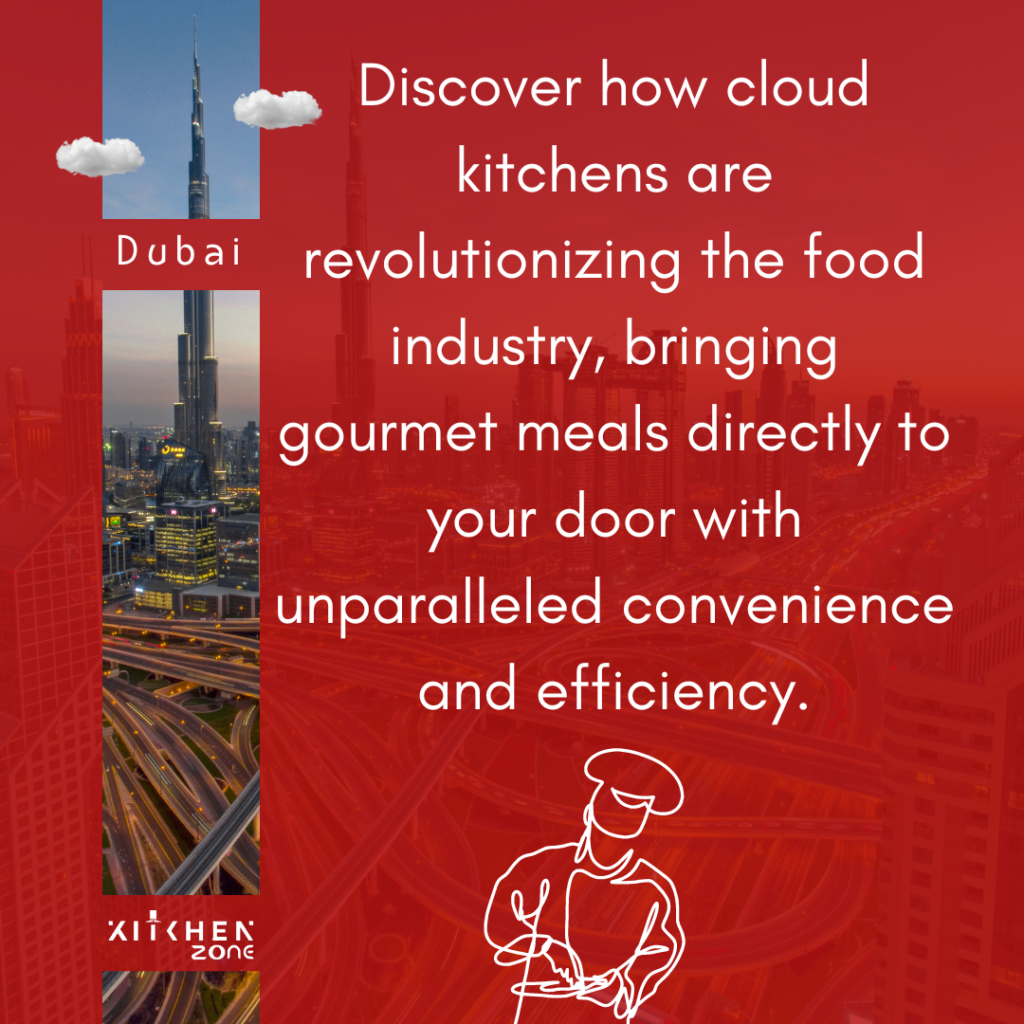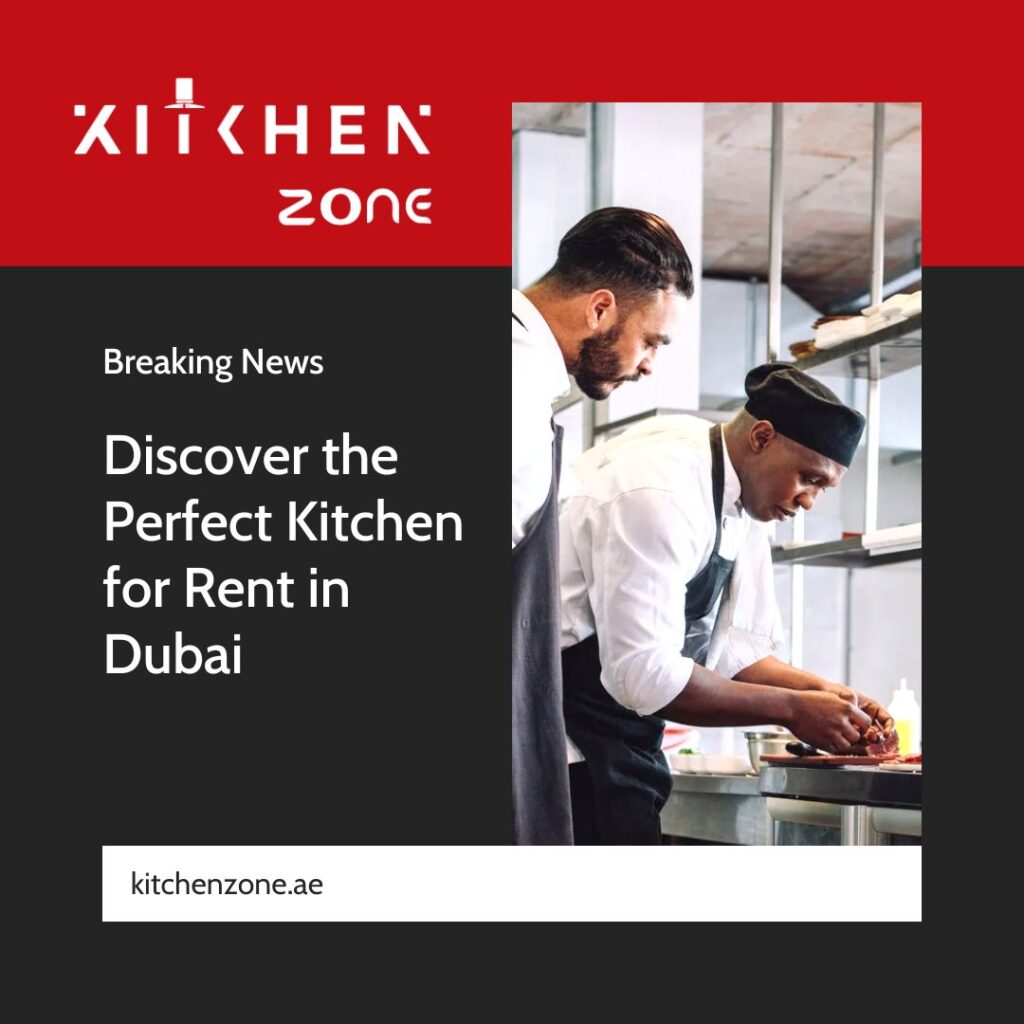Table of Contents
In the bustling city of Dubai, a new trend has taken the food industry by storm – cloud kitchens. These innovative kitchens are revolutionizing the way people experience dining, offering a faster and more convenient way to enjoy their favorite meals. With the rise of online food delivery platforms, cloud kitchens have found their niche in meeting consumer demands for quick, high-quality food delivery.
Operating without a traditional brick-and-mortar restaurant setup, cloud kitchens focus solely on preparing and delivering food. By cutting out the costs associated with dining spaces and storefronts, these virtual kitchens can offer lower prices to customers while maintaining profitability. This industry disruption has enabled both established restaurant chains and emerging food entrepreneurs to expand their reach and tap into new markets.
The convenience and efficiency of cloud kitchens cannot be understated. With the click of a button, customers can order their desired dishes from a wide selection of cuisines, and have them delivered straight to their doorstep. This trend has gained significant popularity among busy professionals, families, and those who simply prefer the ease of enjoying restaurant-quality food in the comfort of their own homes.
As Dubai continues to thrive as a hub for culinary excellence, the rise of cloud kitchens is reshaping the food landscape, offering a new type of dining experience that is sure to leave its mark on the industry for years to come.
Advantages of Cloud Kitchens
Cloud kitchens offer a range of advantages that have contributed to their growing popularity in Dubai. One of the primary benefits is their cost-effectiveness. By eliminating the need for a physical storefront and dining space, cloud kitchens can significantly reduce overhead expenses, such as rent, utilities, and staffing costs. This allows them to offer more competitive pricing to customers while maintaining profitability.
Another significant advantage of cloud kitchens is their flexibility and adaptability. Without the constraints of a traditional brick-and-mortar restaurant, cloud kitchens can quickly adapt their menus and operations to meet changing consumer demands. They can experiment with new recipes, introduce seasonal offerings, and even cater to specific dietary preferences, all while minimizing the risks and investments associated with a physical location.
The convenience and speed of cloud kitchens are also major draws for customers in Dubai. With the rise of online food delivery platforms, customers can easily browse and order their favorite dishes from a wide selection of cuisines, and have them delivered directly to their doorstep. This seamless experience, coupled with the ability to track orders and receive updates in real-time, has made cloud kitchens a preferred choice for busy professionals, families, and those seeking a hassle-free dining experience.
Growth of Cloud Kitchens Dubai
The growth of cloud kitchens Dubai has been nothing short of remarkable. As the city’s population has continued to expand, and the demand for convenient and diverse food options has increased, cloud kitchens have emerged as a viable solution to meet these evolving needs.
One of the key factors driving the growth of cloud kitchens Dubai is the city’s thriving food delivery market. According to industry reports, the online food delivery market in the United Arab Emirates (UAE), which includes Dubai, is expected to reach a value of over $900 million by 2024. This surge in demand has created a fertile ground for cloud kitchens to flourish, as they are well-equipped to cater to the increasing number of customers who prefer the ease and convenience of food delivery.
Moreover, the Dubai government’s initiatives to support entrepreneurship and innovation have also played a significant role in the rise of cloud kitchens. The city’s business-friendly policies, access to funding, and the availability of specialized infrastructure, such as shared kitchen facilities, have made it an attractive destination for both established restaurant chains and aspiring food entrepreneurs to launch and scale their cloud kitchen operations.
Impact on the Food Industry
The emergence of cloud kitchens Dubai has had a profound impact on the city’s food industry, disrupting traditional restaurant models and reshaping the way people access and consume food.
One of the most significant impacts has been the increased accessibility and diversity of food options for consumers. Cloud kitchens, with their ability to operate without the constraints of a physical location, have opened up a wider range of cuisines and dining experiences to Dubai’s residents and visitors. This has not only expanded the culinary landscape but has also fostered greater competition, driving innovation and quality improvements across the food industry.
Moreover, cloud kitchens have enabled established restaurant chains to expand their reach and tap into new markets without the need for costly brick-and-mortar investments. By leveraging the cloud kitchen model, these chains can quickly launch additional “virtual” locations, allowing them to serve a broader customer base and capitalize on the growing demand for food delivery.
The rise of cloud kitchens has also created new opportunities for aspiring food entrepreneurs. With lower barriers to entry and the ability to test new concepts quickly, cloud kitchens have become a breeding ground for innovative culinary ideas and emerging food brands. This has led to a more diverse and dynamic food landscape in Dubai, catering to the evolving preferences and dietary requirements of the city’s cosmopolitan population.
Challenges Faced by Cloud Kitchens
While cloud kitchens have experienced tremendous growth and success in Dubai, they also face a unique set of challenges that require careful navigation and strategic adaptation.
One of the primary challenges is the intense competition within the cloud kitchen space. As the market continues to expand, with both established players and newcomers vying for a share, cloud kitchens must find ways to differentiate themselves and stand out from the crowd. This often requires a strong focus on branding, menu innovation, and customer experience to attract and retain a loyal customer base.
Another challenge is the reliance on third-party food delivery platforms. Cloud kitchens are largely dependent on these platforms to reach their customers, which can result in high commission fees and limited control over the end-to-end customer experience. Navigating these partnerships and finding ways to optimize profitability while maintaining customer satisfaction is a constant balancing act for cloud kitchen operators.
Additionally, cloud kitchens face the challenge of ensuring consistent food quality and safety across multiple locations, often without the direct oversight of a traditional restaurant setting. Maintaining strict quality control measures, streamlining operations, and investing in advanced kitchen technologies become crucial in overcoming this hurdle and building a reputation for reliable and high-quality food delivery.
Technology and Innovation in Cloud Kitchens
The success of cloud kitchens Dubai is closely tied to their ability to leverage technology and drive innovation within the food industry. From streamlining operations to enhancing the customer experience, cloud kitchens have embraced a range of technological solutions to stay ahead of the curve.
One of the key areas where cloud kitchens have excelled is in the optimization of their operations. By integrating advanced kitchen management systems, cloud kitchens can efficiently manage inventory, track orders, and optimize food preparation processes. This not only ensures faster delivery times but also helps to reduce food waste and improve overall operational efficiency.
Furthermore, cloud kitchens have embraced the power of data analytics to gain valuable insights into customer preferences, ordering patterns, and market trends. By leveraging these insights, they can tailor their menus, marketing strategies, and delivery logistics to better meet the evolving needs of their customers. This data-driven approach has enabled cloud kitchens to make informed decisions and stay ahead of the competition.
Another area of innovation in cloud kitchens is the integration of advanced kitchen technologies, such as robotics and automation. These technologies have the potential to streamline food preparation, enhance consistency, and reduce labor costs, all while maintaining the high quality and safety standards expected by customers. As cloud kitchens continue to push the boundaries of innovation, these technological advancements will play a crucial role in shaping the future of the food industry.
Popular Cloud Kitchen Brands in Dubai
Dubai has emerged as a hub for some of the most prominent and successful cloud kitchen brands, each offering a unique culinary experience and catering to the diverse tastes of the city’s residents and visitors.
One such brand is Kitopi, a homegrown cloud kitchen platform that has rapidly expanded across the UAE and the wider Middle East region. Kitopi’s success can be attributed to its focus on technology-driven operations, strategic partnerships with renowned restaurant chains, and a commitment to delivering high-quality, innovative cuisine.
Another leading cloud kitchen brand in Dubai is Foodio, which has carved out a niche for itself by offering a wide range of healthy and sustainable food options. Foodio’s emphasis on nutritious and eco-friendly ingredients, coupled with its efficient delivery service, has resonated with health-conscious consumers in the city.
Sweetheart Kitchen, a cloud kitchen concept founded by renowned chef Izu Ani, has also gained significant traction in Dubai. Sweetheart Kitchen’s focus on elevated, gourmet-quality dishes, combined with its seamless delivery experience, has made it a popular choice among discerning foodies in the city.
Success Stories of Cloud Kitchens Dubai
The rise of cloud kitchens Dubai has given birth to numerous success stories, showcasing the transformative impact of this innovative business model on the local food industry.
One such success story is that of Eggspectation, a cloud kitchen brand that has managed to establish a strong presence in Dubai. Eggspectation’s focus on all-day breakfast and brunch offerings, combined with its commitment to quality and customer service, has earned it a loyal following among Dubai’s residents and visitors.
Another inspiring success story is that of Keventers, a cloud kitchen brand that has successfully leveraged its expertise in milkshakes and desserts to carve out a unique niche in the market. Keventers’ ability to deliver high-quality, Instagram-worthy treats, coupled with its efficient delivery service, has made it a go-to destination for sweet indulgences in Dubai.
The success of cloud kitchens has also empowered aspiring food entrepreneurs to turn their culinary dreams into reality. One such example is Nabz&G, a cloud kitchen that has gained popularity for its innovative and health-conscious plant-based offerings. Nabz&G’s commitment to sustainability and its ability to cater to the growing demand for plant-based options have contributed to its thriving success in Dubai.
Future Prospects of Cloud Kitchens
As the cloud kitchen industry in Dubai continues to evolve, the future prospects for this innovative business model remain promising and exciting.
One of the key drivers of the future growth of cloud kitchens Dubai is the ongoing shift in consumer behavior and preferences. As the city’s residents and visitors become increasingly accustomed to the convenience and variety offered by cloud kitchens, the demand for this type of dining experience is expected to continue rising. This will likely spur further investment, innovation, and competition within the cloud kitchen space.
Additionally, the integration of emerging technologies, such as artificial intelligence, machine learning, and robotics, is expected to play a pivotal role in shaping the future of cloud kitchens. These advancements have the potential to optimize operations, enhance food quality, and streamline the customer experience, ultimately driving the industry forward.
Furthermore, the growing emphasis on sustainability and environmental consciousness among consumers in Dubai is likely to influence the future direction of cloud kitchens. Successful cloud kitchen brands will need to prioritize eco-friendly practices, such as the use of sustainable packaging, the reduction of food waste, and the incorporation of plant-based and locally sourced ingredients, to cater to the evolving preferences of their customer base.
Conclusion
The rise of cloud kitchens Dubai has undoubtedly transformed the city’s food industry, offering a new and innovative way for people to experience dining. By leveraging technology, embracing flexibility, and catering to the evolving needs of consumers, cloud kitchens have emerged as a game-changer, reshaping the way we think about food delivery and accessibility.
As Dubai continues to cement its reputation as a global culinary hub, the future of cloud kitchens in the city looks bright. With the potential for further technological advancements, the emergence of new and diverse culinary concepts, and the growing demand for convenient and high-quality dining experiences, cloud kitchens are poised to play an increasingly pivotal role in shaping the food landscape of Dubai and beyond.





